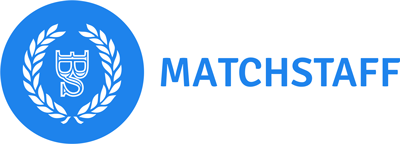Writing an effective bartender job description can be something that is majorly overlooked by managers/or people in charge of recruitment.
It’s often a case of: “Looking for a bartender for a busy bar. Needs to know classics. Two year’s experience minimum”, Inevitably this will of course receive applications, but will those applications be any good and will they be cost effective?
Becoming a bartender job description wizard, will get you better applications and ultimately save time by hiring the right staff.
Employees in this current generation want to feel like they will gain something from working for you. They want to feel like they have made, or have the ability to make an impact on your company and perhaps on their peers. You want the right member of staff for your bar and equally they want the right bar to work in. Which is, when you think about it, really a win/win situation IF you know how to tell your story right.
A great starting template for a successful bartender job description:
- Strong headline: e.g. “*name of bar* needs a charismatic bartender for their dynamic team.
- One sentence of what you’re looking for: e.g “A bartender to work 40hrs a week in our busy cocktail bar, serving guests our famous cocktails.”
- Who are you? Personality of the venue, personality of the team currently in place.
- What do you have to offer to the applicant? Company benefits, chances of progression, regular training opportunities etc. Do you have regular “staff parties” to celebrate the hard work that is regularly needed? Tell them about it. Do you have a reward system for well-performing staff members? Let it be known. Are you a strong advocate of inner-promotion? Fantastic, that’s music to every potential employee’s ears.
- What do you require from the employee? What do they definitely need to possess, what would be ideal and what would be a bonus?
- What should they be prepared for? What tasks should they be expecting to carry out on their day to day schedules? What other things could become part of their tasks?
- Wage: Salary, benefits, compensation
- Any specific information you need to give the applicant? I.e who to address the application to, how long it might take you to reply, how many interviews there might be.
Communicating what you want from an employee as well as what you can offer them benefits both sides. There’s no misunderstandings in terms of what you’re expecting, and by informing your candidates of what you, as a company, will offer to employees will work as an incentive.
Be realistic with what you ask of potential employees - if it’s a skill they could gain from training in two week’s time then ask yourself if it’s something you need to ask them to possess before they work for you.
Sure, everyone would love to have a cocktail master and ultimate industry legend with 30 years of experience crammed into two years a la Tom Cruise, but be honest to yourself and realistic to everyone else.
Whilst you might not think it, the process of writing a good bartender job description can be mirrored and compared to an applicant writing an application letter for the very job you’re advertising. Read the job description out loud. If it doesn’t sound natural or cohesive, you need to change it.
If you put effort into your bartender job description, it will be rewarded with the type of candidates that you want which will in turn save your resources and effort. If you’re happy with four words and a smiley face, then don’t be surprised by the type of applications you gain in return.
Looking for skilled bartenders to join your team? Click here!


